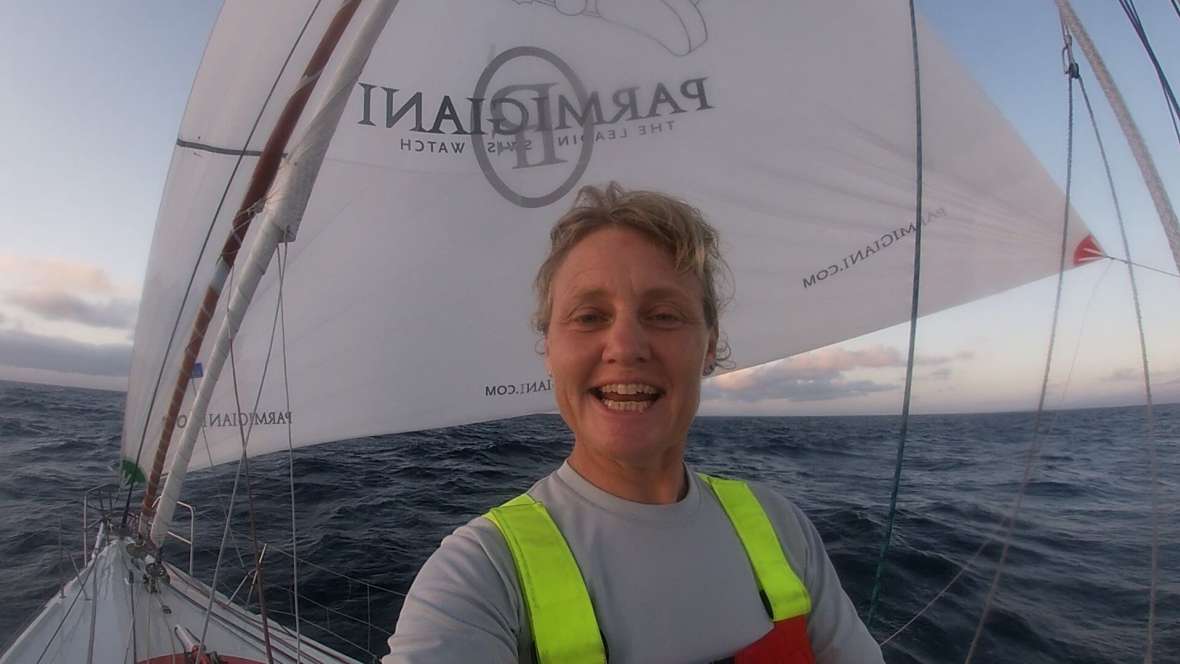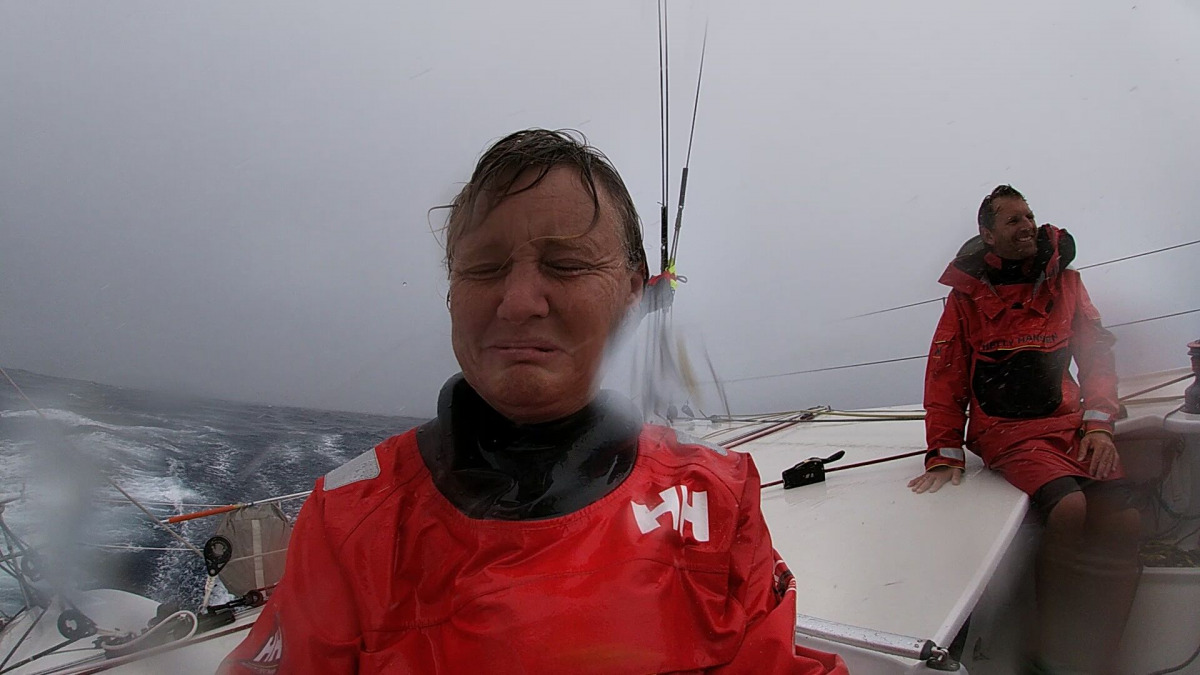The latest race news from the race

Skipper's log: Pip Hare (Britain), Pip Hare Ocean Racing (IMOCA)
The Daily Grind
Dates and time have very little meaning out here. Every day I check my watch to see what date it is then count on my fingers what day of the race that we are on but in reality to us, living in this moment time is marked more by geographical or weather cues than by the passage of hours, minutes or days.
The race is seamless, yes it gets dark and the setting of the sun indicates another day has passed but our lives are not determined by the solar cycle but by the needs of our boat and our bodies. Its perhaps a strange concept to some, to throw time out of the window, so I thought I would share with you what 24 hours on board looks like.

Our lives are governed entirely by a list of priorities, the top three of which are get the boat going in the right direction, keep the boat going fast and make sure we are in the best physical condition possible. These top three constantly vie for attention and it is normally the boat that stamps its foot hardest and gets what it needs before us. If a reef needs to be taken or a sail changed just as you were about to dig into your dinner then dinner will have to wait. If you want to go fast you have to keep your foot on the gas effort is directly linked to reward.
We take it in turns to manage the deck. This does not mean the other one is no where to be seen, during the day we will quite often be on deck together but one of us takes overall responsibility for ensuring we are going fast. Sails must be constantly trimmed, sometimes changed, the course minutely adjusted and for large changes in conditions we must untie then drag the sodden pile of 100+ kilo sails to the most beneficial place on the boat before resecuring them again. We monitor wind, sail plan, and at least once daily download the weather forecast via satellite connection to review the best course to sail and any updates in future conditions. In the squally conditions over the last couple of days the sail changes were frequent, and with the speed the squalls arrive when one of us calls for a reef the other drops everything and follows. Another attempt at dinner bites the dust.
Once a day I will make a full tour of the boat, both below and above decks, bailing out water, looking for damage or wear, trying to see problems before they occur. This inspection will normally result in one job that needs to be done and in this case you strike while the iron is hot. Never put a job off or it will come back to bite you.
For the most part the autopilot will drive the boat, making it easier for one sailor to keep the speed up constantly trimming sails for conditions. However over the last few days the sea state has been challenging and we have found a human at the helm pays dividends. The impact of dedicating a person to the helm results in other jobs being put further down the list. Helming is tiring and being out in the sun dehydrating. In these conditions we prioritise speed and sleeping or eating over all else other than emergency actions – choosing one hour on one hour off at the helm. The off watch skipper can decide what to do in that hour; sleep, eat, drink, do a few jobs it’s up to them to understand what their body needs to stay on top form.
We charge our batteries for the most part using solar panels, these are not mounted but can be moved around the deck to track the sun. At sunrise every morning the panels go out and during the day they will get shifted. If there are huge waves rolling over the deck they must be taken in, then put out again at the first opportunity. During the night we top up the batteries with around two hours of charging from the engine alternator. This is also the time we make water. Two hours of run from our water maker produces just over 10 litres of water into a single jerry can which is about one day’s consumption. During the following day we must find the time to decant this water into separate 1.5 lt bottles which makes it easier to manage for cooking and drinking.
Before dark we take in the solar panels and do another tour of the deck, ensuring all ropes are where they should be and both mentally and verbally noting positions of halyards and snuffer lines so during the night we can put our hands straight on the rope we need with confidence.
Below decks we keep the living accommodation as clean and dry as possible, cleaning, bailing, wiping and disinfecting. Swapping out rubbish bags, ensuring our stock of consumables is kept topped up making sure every item on board is in its place, secure and dry and ready to use. We also need to find the time to look after ourselves, rinse clothes, clean bodies, change shoes or air feet.
Then we talk to you, we take photos and video, edit and compress them, we write, we share, it all takes time – on average I will spend an hour a day uploading media and downloading weather and emails via the slow satellite connection.
And in amongst this daily grind the curve balls will keep coming, a spinnaker sock damaged in the hoist that needs to be dropped to the deck and hand stitched together immediately. A ballast tank hatch leaking into the forward compartment, taking over an hour with pumps and buckets to empty out, find the source of the leak and fix. An airlock in the water maker. A rope burn to the hand.
And so this list of tasks defines our existence. We can never stop but we don’t want to, every fraction of a mile gained is because we have been doing our jobs on every aspect of boat life not just being legendary helms. Ys and I have found our rhythm and we work shoulder to shoulder getting the job done. Every tiny piece of the big puzzle that is put into place is a victory for us. It lets us smile, it lets us surf the waves with a confidence that brings sheer joy. The daily grind is never ending the race is our defining body of time. We are all in to the end and boy are we proud to be here !


